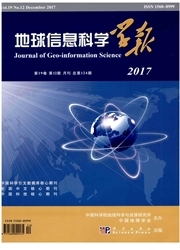

 中文摘要:
中文摘要:
城市是人类文明的主要组成部分,是伴随人类文明与进步发展起来的。在城市建设飞速发展的今天,对古近代城市发展演变的研究显得尤为重要,其中一个重要的手段就是借助于城市地图。城市地图可相对准确地反映出当时城市的空间形态,对于研究城市历史平面布局变迁具有重要的参考价值。本文以近代城市地图(明、清、民国时期的城市地图)为主要研究对象,从其对传统城市地图的继承与受西方文化及先进测绘制图技术影响发展的角度,探究近代城市地图的类型特点、发展方向与价值。近代城市地图一方面既没有完全摆脱传统城市舆图在绘图手法和表现内容上的特点,另一方面又受到西方制图技术和文化的冲击与推动,在继承与发展中逐渐趋向多样化、专题化和近代化,并且能充分反映该时期城市发展的特点与地域特色。本文分别从同一城市(以北京为例)不同时期的城市地图和不同城市典型的城市图2个角度进行分析,讨论并总结了近代城市地图在表现手法、内容和绘图技术等方面的特征及地图本身的价值。
 英文摘要:
英文摘要:
China is a country with centuries' old historical civilization. City culture is one of the most important parts in the long history of the Chinese splendid national culture.Following the prosperity of human civilization, a large amount of cities with various sizes appeared and kept growing continuously. Some cities have developed into world-famous with abundant historical culture and significant historic value, which are originated from the achievements of Chinese ancient civilization. In the present day, when cities are developing rapidly, it isparticularly important to study the evolution of cities since ancient times. One efficient way to achieve this is to study city maps which reflect the spatial pattern of cities in a relatively accurate sense. Therefore, city maps can provide great reference values for exploring the changesin city patterns from a historical view. This paper aims to study the modern city maps produced during the period from the Ming Dynasty to the Republican period. In terms of the inheritance of traditional ancient city maps and the developments encouraged by the western cartography, this paper intends to explore the characteristics,developing trends and values of Chinese modern city maps. On one hand, modern city maps had not completely got rid of the features of Chinese traditional city maps from the aspects of method and content; on the other hand, modern city maps had also been influenced and motivated by western knowledge. Therefore, Chinese modern city maps were gradually developing towards diversification, thematization and modernization during the process of inheritance and development, reflecting the trait of city development and regional features at that time. This paper also applied the case study method to explore the Chinese modern city maps with typical examples from various time and cities, and to further discuss and make comments on the representations,contents, techniques as well as significant values of these maps.
 同期刊论文项目
同期刊论文项目
 同项目期刊论文
同项目期刊论文
 期刊信息
期刊信息
